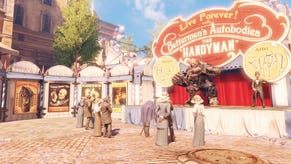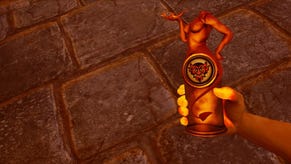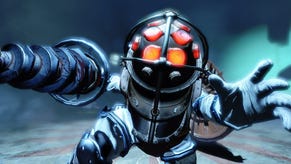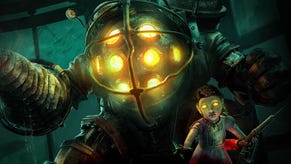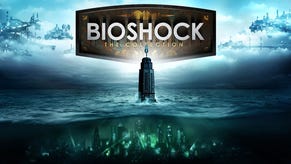BioShock Infinite stays true to its setting despite some "negative Rorschach views"
With all the Ken Levine BioShock Infinite interviews coming out, PC Gamer delve into some of the darker elements of the game resulting from the period it's set in.
Talking to PC Gamer, he goes into the time period of the game and staying true to it, but also some things that many might not consider about American History.
"I don’t feel that it’s the purpose of the game or the responsibility of the game to be a survey of American history," he said. "Certainly there are many things that are in Columbia that were very prevalent at the time, whether it’s charismatic religious movements, whether it’s a sense of growing nationalism—which was very present at the time. I’ve talked about that before, so I won’t bore you with that again. Or the deeply institutionalized racism and classism, which were… It was so prevalent that when you go back and read the writings of known figures like Teddy Roosevelt, who was extremely progressive in so many ways… I’m not using “progressive” in the sort of “Fox News versus MSNBC” way. I’m just saying that he was involved in anti-trust, in splitting up large corporations like Standard Oil.
"He was also a champion of the rights of the poor. But he was also what you would call a neoconservative in a lot of ways. He was very keen on American expansion. When you read his writings as sort of what you would call, at the very least, an extremely compassionate conservative, he would refer to Jews and African-Americans in the most horrible of terms. He was a man of his time. Abraham Lincoln, if you read his writings now, how would you ascribe him? Even though he’s the most important abolitionist of all time, and a great man, he was a man of his time. He viewed African-Americans as a lesser race. He just thought they should be free. Thomas Jefferson owned slaves. George Washington owned slaves. People were men of their times, and this is a game that’s set in a time where, if you don’t have those elements in the game, it’s just dishonest, you know?"
Levine said he realized the team needed to diversify but not because "it was unrepresentative of reality" and he wanted to be, but because it was need to tell a story.
"Most people don’t know how Catholics were viewed in this country, or how the Irish were viewed in this country," he said. "They were viewed as… I use this term obviously not from myself, but at the time they were viewed as subhuman by some people. When we had our first Catholic president in 1960, many people thought he was going to be an operative of the Pope. He had to publicly proclaim that he wasn’t. We’re fortunate to grow up in a time where a lot of that is behind us. But this game wouldn’t be honest if we didn’t have that."
A game like this will be perceived in many different ways and is somewhat of a mirror for some, Levine explains.
"When I started working on this game, relatives of mine were very offended, because they thought it was an attack on the Tea Party. Specifically an attack on the Tea Party, which they were very active in. Then, when we sort of exposed the Vox Populi people, I saw a lot more left-leaning websites being like, 'This is trying to tear down the labor movement!' I remember that I saw postings, unfortunately, on a white supremacist website, Stormfront, where people literally said, 'The Jew Ken Levine is making a white-person-killing simulator.'
"I think these games are a bit of a Rorschach for people. It’s usually a negative Rorshach. It p**ses them off, you know? But I’d way rather have that than to…These games are, to some degree… If they’re about anything they’re about not buying into a single point of view. About having a lack of confidence in anything. They’re not ever an attack on a single idea. It’s a bit of a plague on all your houses. The American experiment is insanely successful and positive. The notion of democracy is the most… There’s that saying that “it’s the worst political system in the world, except for all the others.” It’s transformed the entire world. The founders in this world, this city, were worshipped."
Levine goes on to compare his experience with the first BioShock to cable TV show Mad Men, saying he was stunned the team was "given this money to make a game about failed Objectivist utopia,” you know? It’s insane."
You should also check out Stace's interview with Levine following the first hands on of the game.
Game's out in March on PC, PS3, and Xbox 360.


